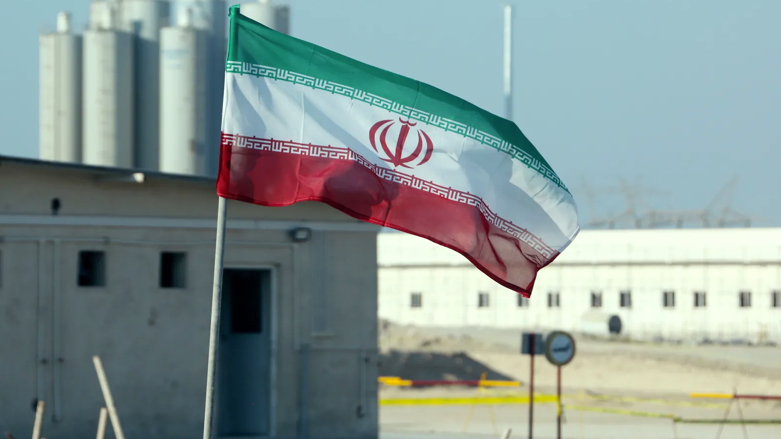Biden committed to preventing Iran from acquiring nuclear weapon; military option remains as ‘last resort’

WASHINGTON DC, United States (Kurdistan24) - Three issues have raised Iran to a new prominence in Washington’s national security agenda. They include the nation-wide protests—ongoing since Sept. 16—triggered by the death, in the custody of Tehran’s so-called morality policy, of the young Kurdish woman, Jina (Mahsa) Amini, detained for not properly wearing her head scarf.
They also include Iran’s alignment with Russia in its unprovoked assault on Ukraine through the provision of “suicide drones.” This war—the most intense and brutal conflict in Europe since World War II—carries echoes of that earlier conflict and is now the top national security issue for the US, Canada, and most European countries.
The third issue elevating Iran’s significance on the world stage is the failure of the negotiations aimed at reviving the 2015 nuclear deal, known as the Joint Comprehensive Plan of Action (JCPOA), which Donald Trump left in 2018.
The nuclear negotiations began to falter in the spring, as Iran began raising ever new conditions for reviving the accord. As a State Department spokesperson told Kurdistan 24 in June, “Iran needs to decide to drop their additional demands that go beyond the JCPOA”—and that was before the start of the Iranian protests and before the issue of Tehran’s drone sales to Russia emerged.
Blinken: ‘Diplomacy’ is Best Way for Blocking Iranian Nuclear Weapons, but other options.
On Sunday, Secretary of State Antony Blinken addressed the annual, national conference of the liberal Jewish organization, J Street, and Iran featured prominently.
Blinken explained that the Biden administration, since the beginning, had “focused on rebuilding a united approach” toward Tehran “with our allies and partners, putting us in a much stronger position to exert coordinated, effective pressure on Iran—” distinguishing the approach of this administration from that of the previous one.
“Together we engaged in a meaningful diplomatic process to see, if we could reach agreement for a mutual return to the JCPOA,” Blinken continued, “but Iran has repeatedly demonstrated that it is unwilling or unable to commit to the steps that it needs to take.”
“We continue to believe that diplomacy is the best way to prevent Iran from obtaining a nuclear weapon,” Blinken said, as he repeated a long-standing Biden administration position.
However, Blinken added a new, or relatively new, warning. “Should the Iranian regime reject that path,” he said, “its leaders should make no mistake that all options are on the table to ensure that Iran does not obtain a nuclear weapon.”
It sounded like Blinken was raising the prospect of the use of military force to prevent Iran from acquiring nuclear weapons, if diplomacy failed, so Kurdistan 24 asked if that was, indeed, the case.
“President Biden is absolutely committed to never allowing Iran to acquire a nuclear weapon,” a State Department spokesperson replied.
Indeed, last week Biden hosted French President Emmanuel Macron for the first state dinner (a high honor) of his presidency. Addressing the press on Thursday, with Macron at his side, Biden summarized the policy of their two countries toward Iran.
“The French and the United States are working together to hold accountable those responsible for the human rights abuses [in Iran], to counter Iran’s support for Russia’s war, and to ensure that Iran does not — does not — emphasize ‘does not’ — ever acquire a nuclear weapon,” Biden affirmed.
Thus, the State Department spokesperson, in answering the question from Kurdistan 24, had underscored Biden’s own words, pronounced the week before.
The spokesperson also added, “As Secretary Blinken said, we believe diplomacy is the best way to achieve that goal,” of preventing Iran from acquiring a nuclear weapon, “but President Biden has also been clear that we have not removed any option from the table, and that a military option remains as a last resort.”
Executing the military option, however, would not be easy. As talks on reviving the JCPOA stalled, it emerged that Iran was digging “a vast tunnel network” south of its Natanz nuclear production site, as The New York Times reported in June.
According to US and Israeli intelligence officials, the work, some 300 kilometers south of Tehran, appeared to be Iran’s “biggest effort yet to construct new nuclear facilities so deep in the mountains that they can withstand bunker-busting bombs and cyberattacks,” the Times said.
More recently, NBC News reported, just two weeks ago, on nuclear work at another underground facility: Fordow, where Iran has begun increasing its uranium enrichment to 60 percent, further approaching the 90% purity required for a nuclear weapon.
